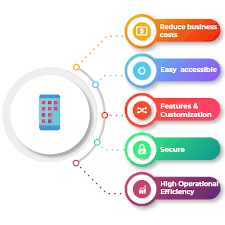Exploring the Role of a Front End Software Engineer in Modern Web Development
The Role of a Front End Software Engineer
A front end software engineer is a key player in the development of websites and web applications. This professional is responsible for creating the user-facing side of a website that users interact with. Front end software engineers work closely with designers and back end developers to ensure a seamless user experience.
Responsibilities of a Front End Software Engineer
Front end software engineers are tasked with translating design mockups into functional websites. They use languages such as HTML, CSS, and JavaScript to build interactive and responsive web pages. These professionals are also responsible for optimizing the performance of websites to ensure fast loading times and smooth user interactions.
Skills Required
To excel as a front end software engineer, one must have a strong understanding of web development technologies. Proficiency in HTML, CSS, and JavaScript is essential. Knowledge of front end frameworks such as React, Angular, or Vue.js is also beneficial. Additionally, front end software engineers should have an eye for design and be able to collaborate effectively with team members.
Career Outlook
The demand for front end software engineers continues to grow as more businesses establish an online presence. With the increasing emphasis on user experience and interactivity on the web, skilled front end developers are highly sought after in the job market. Front end software engineering offers a rewarding career path with opportunities for growth and advancement.
7 Reasons to Pursue a Career as a Front-End Software Engineer
- Opportunity to work on visually appealing and interactive web projects.
- High demand for front end developers in the job market.
- Ability to collaborate with designers and back end developers.
- Continuous learning and growth opportunities with evolving web technologies.
- Satisfaction of seeing your work directly impact user experience.
- Potential for creative expression through design and user interface development.
- Versatility to work in various industries, from tech startups to established corporations.
Challenges Faced by Front-End Software Engineers: High Expectations, Compatibility Issues, Rapid Tech Changes, and Limited Back-End Exposure
- 1. High Expectations
- 2. Browser Compatibility Issues
- 3. Rapid Technological Changes
- 4. Limited Focus on Back End Development
Opportunity to work on visually appealing and interactive web projects.
Front end software engineers have the exciting opportunity to work on visually appealing and interactive web projects. By utilizing their skills in HTML, CSS, and JavaScript, they can bring designs to life and create engaging user experiences. This aspect of the role allows front end software engineers to showcase their creativity and contribute to the aesthetic appeal and functionality of websites and web applications, making their work both rewarding and impactful.
High demand for front end developers in the job market.
The high demand for front end developers in the job market is a testament to the critical role they play in creating engaging and user-friendly web experiences. Businesses across various industries are increasingly prioritizing their online presence, driving the need for skilled front end software engineers who can transform design concepts into functional websites and applications. This demand not only reflects the importance of a seamless user interface but also presents abundant opportunities for front end developers to showcase their expertise and contribute to the ever-evolving digital landscape.
Ability to collaborate with designers and back end developers.
The ability of a front end software engineer to collaborate effectively with designers and back end developers is a valuable asset in the development process. By working closely with designers, front end engineers can ensure that the user interface aligns with the intended design vision, resulting in visually appealing and user-friendly websites. Collaboration with back end developers is essential for seamless integration of front end components with server-side functionalities, leading to a cohesive and efficient web application. This teamwork fosters a holistic approach to web development, where all aspects work together harmoniously to deliver an exceptional user experience.
Continuous learning and growth opportunities with evolving web technologies.
Front end software engineers benefit from continuous learning and growth opportunities due to the ever-evolving nature of web technologies. As new frameworks, tools, and techniques emerge, front end developers have the chance to expand their skill set and stay current with industry trends. This constant evolution not only keeps the work engaging and dynamic but also presents opportunities for personal and professional growth as front end software engineers strive to master new technologies and enhance their problem-solving abilities in the fast-paced world of web development.
Satisfaction of seeing your work directly impact user experience.
As a front end software engineer, one of the most rewarding aspects is the satisfaction of witnessing how your work directly influences user experience. By crafting intuitive interfaces, optimizing website performance, and enhancing interactivity, front end developers play a crucial role in creating a seamless and enjoyable online journey for users. The ability to see firsthand how your coding skills and design choices positively impact how users interact with a website can be incredibly fulfilling and motivating.
Potential for creative expression through design and user interface development.
Front end software engineers have the exciting opportunity to unleash their creativity through design and user interface development. By combining technical skills with a keen eye for aesthetics, these professionals can craft visually appealing and user-friendly websites that leave a lasting impression. The ability to experiment with colors, layouts, animations, and interactive elements allows front end software engineers to showcase their artistic talents while enhancing the overall user experience. This aspect of the role not only adds a layer of personal expression but also contributes to creating engaging digital experiences that resonate with users.
Versatility to work in various industries, from tech startups to established corporations.
Front end software engineers possess the valuable pro of versatility, allowing them to thrive in a wide range of industries, from dynamic tech startups to well-established corporations. Their ability to adapt and contribute effectively in diverse environments makes them indispensable assets in today’s ever-evolving digital landscape. Whether collaborating with a small team on an innovative project or integrating complex systems for a large organization, front end software engineers bring their expertise and creativity to deliver exceptional user experiences across different industries.
1. High Expectations
Front end software engineers frequently encounter the challenge of managing high expectations from clients and users with regards to the visual appeal and functionality of websites. Clients and users often have specific design preferences and usability requirements, expecting front end engineers to deliver websites that not only look visually stunning but also function flawlessly across different devices and browsers. Meeting these high expectations can be demanding, requiring meticulous attention to detail and constant communication with stakeholders to ensure that the final product aligns with their vision while also meeting technical standards.
2. Browser Compatibility Issues
Ensuring that websites work seamlessly across different browsers can be a challenging task for front end software engineers. Browser compatibility issues arise due to the variations in how different browsers interpret and display web content. Front end developers must carefully test and adjust their code to ensure that the website functions correctly on popular browsers such as Chrome, Firefox, Safari, and Edge. Addressing these compatibility issues requires additional time and effort, potentially delaying project timelines and increasing development complexity.
3. Rapid Technological Changes
One significant challenge faced by front end software engineers is the rapid pace of technological changes in their field. Front end technologies are constantly evolving, with new frameworks and tools emerging frequently. This dynamic environment demands continuous learning and staying updated with the latest trends to remain competitive and deliver cutting-edge solutions. Keeping up with these rapid changes can be demanding and time-consuming, requiring front end software engineers to invest significant effort in professional development to stay relevant in the ever-evolving landscape of web development.
4. Limited Focus on Back End Development
Front end software engineers may face a con in their career due to their limited focus on back end development. This limitation can potentially hinder their comprehensive understanding of full-stack development. Without exposure to the intricacies of back end systems and processes, front end engineers may encounter challenges in creating cohesive and efficient solutions that seamlessly integrate both front end and back end components. It is essential for front end software engineers to actively seek opportunities to broaden their knowledge and skills in back end development to become well-rounded professionals capable of tackling complex projects effectively.





